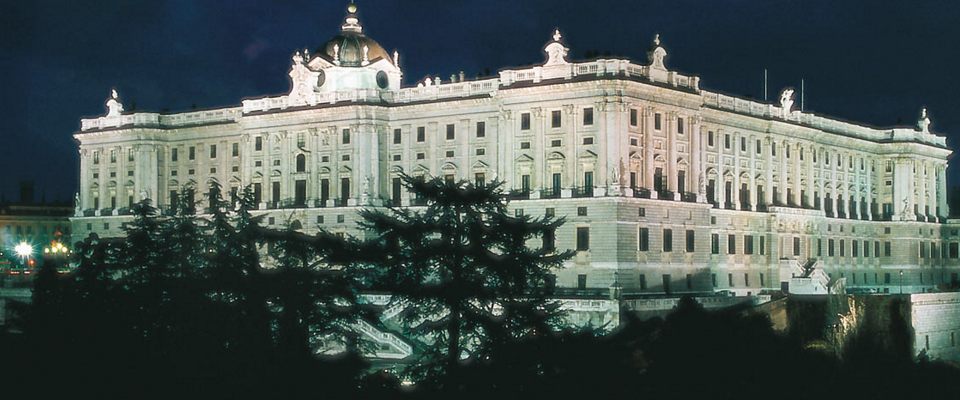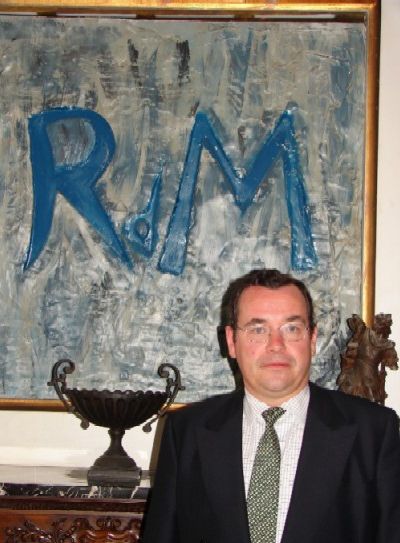Jaime Ávila, General Director of Recursos de Mercado, met with us at the agency’s offices in Plaza de Oriente in Madrid to give us an overview of the current situation in the sector, and how the Digital Television licences will affect communications consultancies. He also gave us his particular vision of what ADECEC should be.
 What is Public Relations for?
What is Public Relations for?
The conception that we at Recursos de Mercado have of Public Relations is somewhat particular: Public Relations serves to offer information to society in general on multiple issues related to the company’s own personality and its environment, which allows the individuals that make up the company to make their own decisions. The journalist goes in search of content and acquires and elaborates only that information that he/she considers interesting for his/her readers or audience. No matter how much some people insist on persecuting editors, if we do not offer quality content that is perfectly adapted to each medium and section, we will not obtain results. There is no need to harass journalists: doing our job well is enough.
I think it is a mistake to use PR to replace other communication techniques such as advertising. And I think it is a mistake to put too much pressure on the media, especially when you have nothing new to say. PR provides credibility, it provides a lot of information about the company, but it does not provide frequency. If you want to achieve the necessary frequency to make a promotion or product launch a success, you have to support it with publicity.
You mean to position a brand you have to go media first?
I say that a company has six communication techniques, and a communication plan cannot ignore any of them (public relations, advertising, direct marketing, promotional marketing, sponsorship and sales force communication). To position a brand, you can’t leave out any of them, even if there are some that combine better than others. Anyone who tries to use PR as if it were advertising is doomed to failure: in the short term, they will ruin their image in the eyes of journalists.
When talking about Public Relations, it is almost always identified with terms such as perception, influence or persuasion… If you had to choose one of them, which one would you choose?
Information. Advertising is persuasive, PR should be informative.
Why?
 Because you, the journalist, are a filter, and you won’t tolerate me being persuasive. As I have said before, Public Relations serves to inform about multiple aspects related to the company and its environment, not to launch an advertising message in a repetitive way. And, I reiterate, they provide credibility, because the information medium and the journalist endorse the information offered.
Because you, the journalist, are a filter, and you won’t tolerate me being persuasive. As I have said before, Public Relations serves to inform about multiple aspects related to the company and its environment, not to launch an advertising message in a repetitive way. And, I reiterate, they provide credibility, because the information medium and the journalist endorse the information offered.
We are living in a time of great confusion, with attempts being made to use Public Relations as if it were advertising or direct marketing, and advertising is being masked under the guise of public relations, and the latter is a very serious matter.
Are you talking about advertorials?
No: advertorial is just another way of advertising, which uses a certain creativity. I am referring to those situations in which pressure is put on journalists by forcing them to mask persuasive (advertising) information under the guise of information. It is a way of limiting the right of some to inform freely, and of limiting the right of others to access truthful information that allows them to make decisions about their lives. Any code of ethics is crystal clear in this respect.
The company was born at a time of certain uncertainty for Public Relations, and has maintained its position even in times of crisis, such as the last one at the beginning of the century. What does the sector need to consolidate itself definitively as an essential tool for Spanish companies?
The company was founded at the end of 1992, a time of great economic crisis. Public Relations was an absolute unknown for a very high percentage of companies. The market was apparently small and was dominated by the 20-22 traditional agencies. However, all these variables, which at first sight seemed negative, became opportunities.
We are currently emerging from the economic crisis that began in 2002, but not from the fundamental crisis, the crisis of credibility. The latter, on the contrary, has been aggravated, some companies, in order to sustain themselves, have tried to withdraw business from other communication techniques in order to attract them to Public Relations. I don’t think it has sat well with the bulk of the journalistic profession that the effectiveness of advertising is being questioned. The viability of the media depends on advertising revenue.
In this context, I believe that there will be a sieve because there is an oversupply of information in the media. Some believe that the economically powerful will be saved, while I believe that more companies will retain their credibility with the media.
Your strategic location is paradoxical within the sector, given that most consultancy firms have opted to set up either in the financial centre of the city – Castellana – or in the outskirts. What does it mean to you to be located where you are? Does being located in the Plaza de Oriente help to make a difference in the lobbying field?
We do not impose a timetable on our clients, but we always have to be at 100%, depending on how important we are in terms of information. With this philosophy, in order to be able to do our work well, we preferred to opt for accessible facilities, where we could prepare press conferences, breakfasts and other services, without affecting the client’s pocket.
As far as lobbying is concerned… I don’t like the term at all. You have to be aware of what you really do and what is effective to do. We never use the term lobby.
You have a globalist conception of communication. However, which areas do you consider you are strongest in?
I think we touch or have touched all sectors (construction, industrial, fashion, human resources consultancy, insurance…), although we don’t consider ourselves specialists in a particular sector, but rather specialists in communication. We don’t do anything other than media relations, because that’s what we do best.
In Recursos de Mercado there is the figure of the Communications Director, whose presence in consultancy firms seems to be slowly taking hold. Should we do our homework at home first?
We neglect our communication strategy one hundred percent: if you were to analyse our results instead of those of our clients, you would fail us. Our website is down, we don’t do PR for ourselves. We are an agency that has a lot of clients, and very interesting ones, but our turnover is low, so we always have a lot of work to do. Because of all this, in the daily hustle and bustle, we forget about ourselves. Using my relationship with journalists to talk about myself is a bit of a turn-off for me. To be honest, I would hire another agency to do my PR.
However, I can proudly say that, by dint of hard work, I believe we have managed to generate a good image among the media.
Why don’t you have an updated website?
When it comes to the website, our great fear is to know how to focus the contents that we store there, since the Internet is a medium that is accessed by people with such different perceptions, it is very difficult to give it the right focus. In spite of this, in the end we will make an ordinary, informative page. But when we do it, we will be the ones who will take care of it.
Recursos de Mercado was founded in 1992, has more than five employees and a turnover of around 600,000 euros a year. Why aren’t you in ADECEC?
I may be wrong, but the first perception I have of ADECEC is that of a group of large companies in the sector reacting against small companies that were making a strong impact. It was an absolutely closed association: we were not invited to participate at any time; on the contrary, we felt that we were the enemy to beat.
My second major perception came as a result of a direct confrontation between ADECEC and Anuncios magazine, at that time one of the magazines that gave the most informative coverage to Public Relations. As a PR professional, I could not and cannot look favourably on such a reaction, let alone participate directly or indirectly in it.
So it is not a question of economics: before joining, I would have to gather a lot of information and study how my image would look to the groups I am interested in. If joining the Association means giving up my identity, I won’t do it.
Do you consider ADECEC’s minimum entry requirements to be excessive?
I believe that the minimum requirements for an employer’s association are the ethical and professional behaviour of its members. The number of clients or turnover has no relation whatsoever to ethics and professionalism in the performance of public relations. On the other hand, taking away competitive advantages from a young person starting out is something I cannot agree with. Nor do I agree with subsidies – using public money to give competitive advantages to some companies over others. I would totally open my hand to the entry of new members.
Would you then advocate the creation of minimum recommended tariffs?
No. A large multinational with its offices halfway around the world and its shared know-how is a totally different product to a young person who is just starting out and has only his or her drive and enthusiasm at his or her disposal. Forcing them to charge rates similar to those of consolidated companies could be a form of veto, and not allowing them to be part of an association that aspires to represent the entire sector – the employers’ association – could be a form of discrimination.
Would minimum rates be detrimental to free competition and the principle of free access to information. Will only companies with large budgets be able to communicate? There are many companies with small budgets that have a lot to say. Do you think a large company would accept the introduction of a range of maximums and minimums, and a sixty percent drop in its fee?
On the other hand, I don’t understand how the big multinationals don’t have a second brand where people can train, while at the same time covering an important volume of business among those companies that can’t afford to pay their emoluments. It would be a good option.
We are very flexible, when we compete with the big companies, we have to budget a fee similar to theirs, otherwise we fall down due to recklessness. I call it the ‘multinational effect’: if you talk to the owner of the company, his conception will be different from that of a third party who, as a general rule, covers his back by hiring the multinational of the moment, claiming that ‘if I hire the most expensive, I won’t gamble’. But we have never stopped working with a company for economic reasons, if a client is informatively important, we are interested, so as not to lose him we can go down to a more competitive fee than someone who is just starting out.
In my opinion, the introduction of minimum tariffs is nothing more than the continuation of a policy of containment that ADECEC wanted to initiate at the time. Being professional is not incompatible with having a name.
Most of the traditional agencies have ended up giving in to the offers of the multinationals, in most cases with not very favourable conditions. Are you thinking of being bought?
This is a complex question. We do not belong to any international network by choice. I have not done many things for fourteen years because I have a name: if I belong to a network, what I do is to recommend a client of mine to a third party whose way of working I do not know. I am accountable for my work and my team: I cannot be accountable for a network.
If a client of mine wants to enter a foreign market, what I can offer him is a research job among the local media, from which he can choose a shortlist of local agencies from which he can choose.
If a multinational buys us, they will impose their way of doing things, their principles and their values. Of course, I can’t guarantee that they will never buy us… but what I can guarantee is that if someone comes along, I won’t be at the helm, unless the general philosophy of the company is maintained.
What does the future of the sector look like with the possibilities that DTT will offer, and will it benefit not only the advertising sector and production companies, but also communication consultancies?
In my opinion, the more media there are, the better. Back to the beginning of the interview: we have to work with a lot of creativity and give different approaches to information. We are going to have to work, invest and position ourselves, as happened with the emergence of the Internet. The emergence of new channels may come at the expense of total coverage by impact, but always in favour of frequency, we will have many more opportunities to communicate. I see it as a very clear opportunity, and we are already working on it.
 One area of particular concern for me will be news monitoring, as the emergence of new local media may make monitoring more difficult. In this area, we will have to work hard, or else, we will have to advocate for outsourcing.
One area of particular concern for me will be news monitoring, as the emergence of new local media may make monitoring more difficult. In this area, we will have to work hard, or else, we will have to advocate for outsourcing.
In a minute…PR PROFILE
Age: 40
Sign: Aries
Marital status: Married
A book: The Three Musketeers by Alexandre Dumas
A film: Forrest Gump
Beach or mountain: mountain
A challenge: this company
A wish: that things continue the way they are going
Interview with Jaime Ávila
General Director of Recursos de Mercado
25 october 2005 by:

 What is Public Relations for?
What is Public Relations for?



